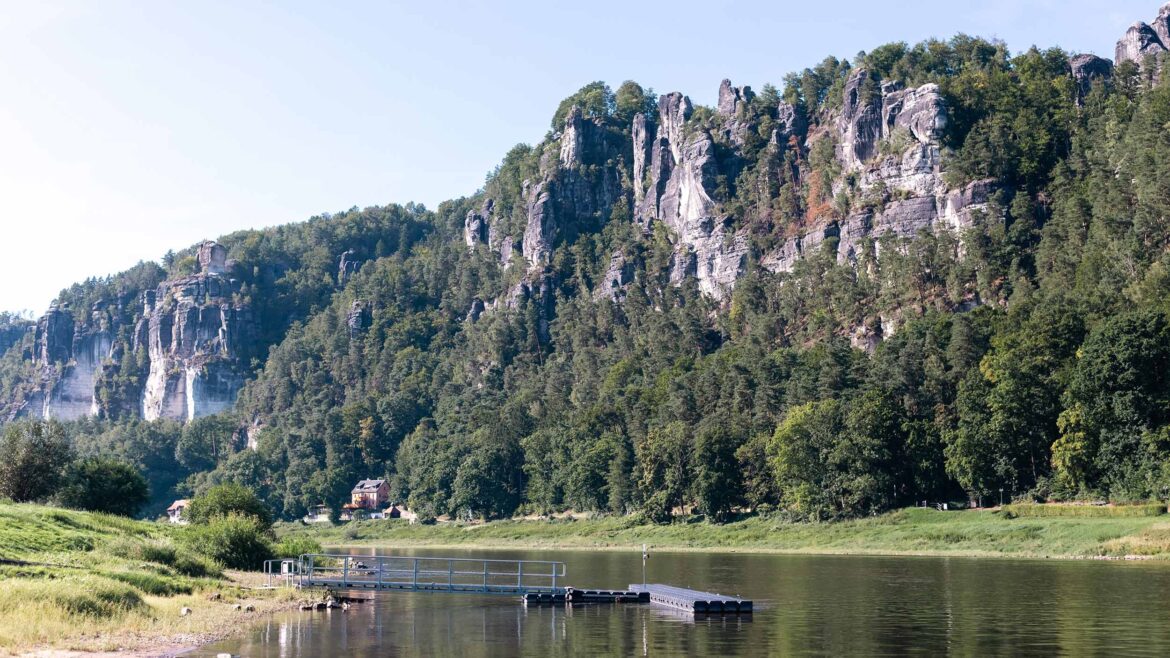When talking about Germany, you might think of Oktoberfest, currywurst, beer, mountainous areas, and how well-organized everything is. But Germany is also one of the most camping and motorhome active countries in Europe where you will see dozens of motorhomes and vans pass you on the road every day, see all kinds of campsites that are used all year, even in colder months and with that, also restrictions applying to camping and parking.
Truthfully, we were a little bit anxious about traveling to Germany with our motorhome and planning on staying at places for free since we had heard that it can be challenging and with the way Germans are stereotyped as being strict and punctual, we were afraid of breaking some rules without knowing it.
We stayed mostly in cities or little towns and I’m happy to say that traveling with a motorhome might be challenging in some aspects but generally, it was way easier than we anticipated. Check out the 13 things to know about traveling and camping in Germany with a vehicle and find out what were the most challenging parts for us!
Green zones
Low-emission zones in Germany are very popular, in fact, there are more than 50 low-emission zones in the country, covering about 70 cities. You can find green zones in cities such as Berlin, Munich, Cologne, Bremen, Leipzig, Frankfurt am Main, and many more. To have access to the green zones, your vehicle must have a special kind of environmental badge that indicates how much your vehicle may produce pollution. It is against the law to drive in those areas without the badge and if you do, you may need to pay a fine up to 80 Euros.
Because also foreign cars need to have this badge, we usually checked beforehand what cities and areas have green zones and tried to avoid them since our motorhome was manufactured in 1989 and our vehicle doesn’t meet the emission standards unfortunately. Usually, we didn’t have issues finding the best routes to steer away from the low-emission zones but sometimes online maps were offering better routes straight through the zones so I would recommend checking twice before hitting the road.
If you are considering getting the badge for your vehicle, it can be done at local inspection stations or online and the environmental badge is valid for the life of the vehicle.
Water
If you are planning on staying at parking lots and spaces for free, getting water for your daily needs might be a problem. At most gas stations in cities, we didn’t see any place to fill up with water, except sometimes on highways. Also in supermarkets, we rarely saw 5-liter water bottles which means that if you want to fill up water, the easiest place to do that is at campsites. We once stayed at a campsite in Koblenz and paid 13 Euros for one night which was a bargain and got the chance to fill up with water as much as we wanted.


No toilet disposal stations, except at campsites
Similarly to the water problem, in Germany, we couldn’t find any toilet disposal places that you can use by gas stations or motorhome dealerships like in Poland. For that, renting a spot at a campsite from time to time seemed like the best option. Also, an important thing to note about Germany is that most public restrooms are paid, ranging from 0,50 Euro cents to even 2 Euros. The most expensive public toilets we found were at highway gas stations so having our own at the motorhome saved some money.
Many campsites
Germany is one of the most vanlife-pro countries where you can find all kinds of campsites at almost every location you might think of traveling to. This makes life easier in some ways but also a bit challenging in others. If you prefer to stay at campsites, this is the perfect place to travel to since there are campsites where you can stay for a little money and get the basic needs covered as well as pay a higher price and get wifi, showers, cafes, and more. If you want to save money and would prefer to stay at free parking spots, the amount of campsites and the popularity it has means you won’t have the basic amenities for free like water, even for a small fee at a gas station and a lot of times finding the cheapest campsites can be challenging.

Developed vanlife culture
In Germany, there are plenty of shops and places to find different things for camping, vans, and motorhomes and even join some motorhome festivals/meetups. What’s more, usually the camping gear for different vehicles and purposes was more or less affordable and more available than in other countries in Europe that we have visited so far. While traveling through Germany, we bought a new water tank for the motorhome, plenty of small gas bottles for our portable heater, and even portable, foldable solar panels that we can install anywhere we want, and everything we got for such good prices.
Not only that, there are even dedicated parking spots for motorhomes at some parking lots by grocery stores that we saw and that are handy if you have a larger vehicle, as well as general parking lots that are also open for motorhome users and sometimes have electricity plug-ins for use. In Germany, for the first time in a year living in a motorhome, we felt like we truly belonged amongst others which was an amazing feeling. 🙂
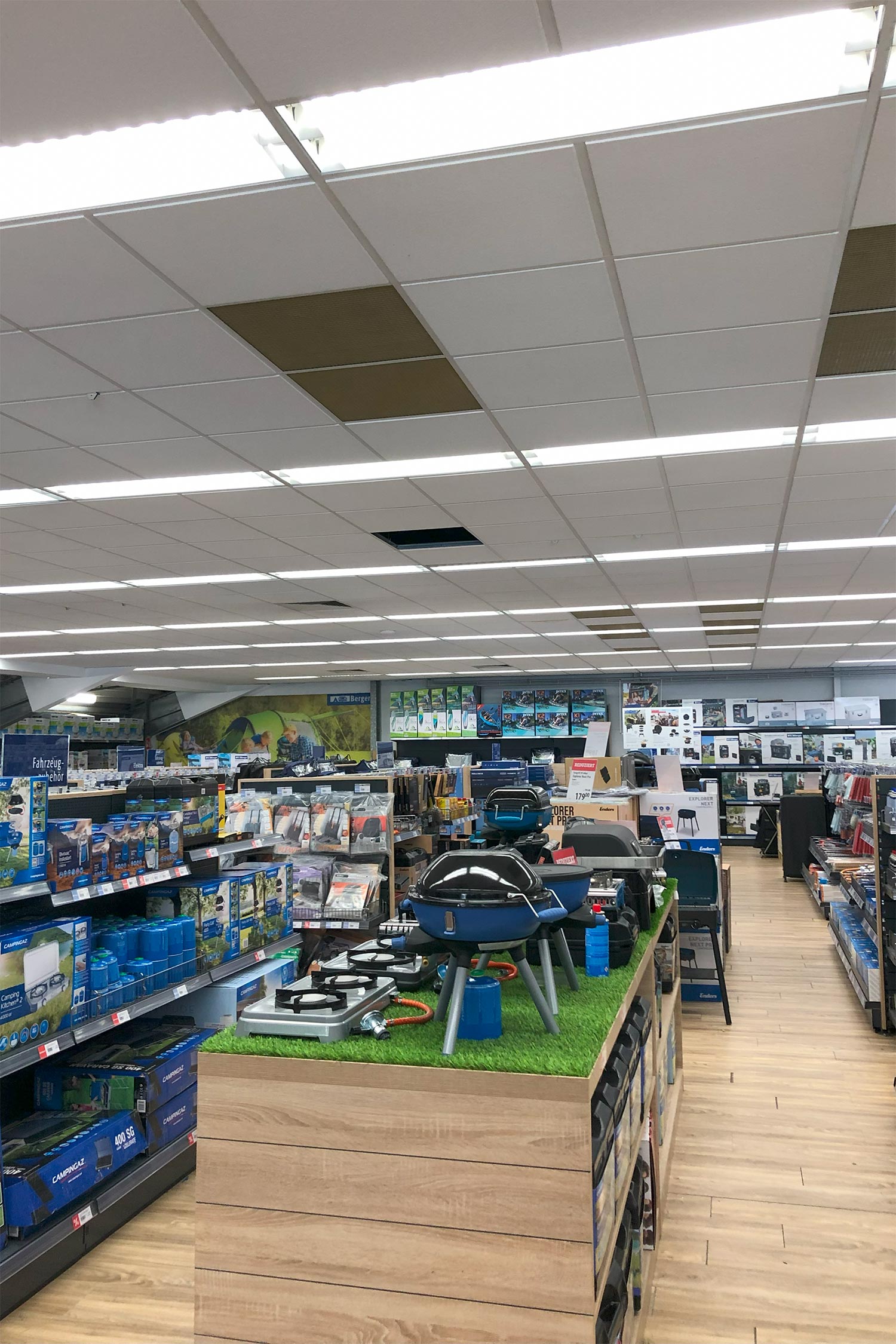
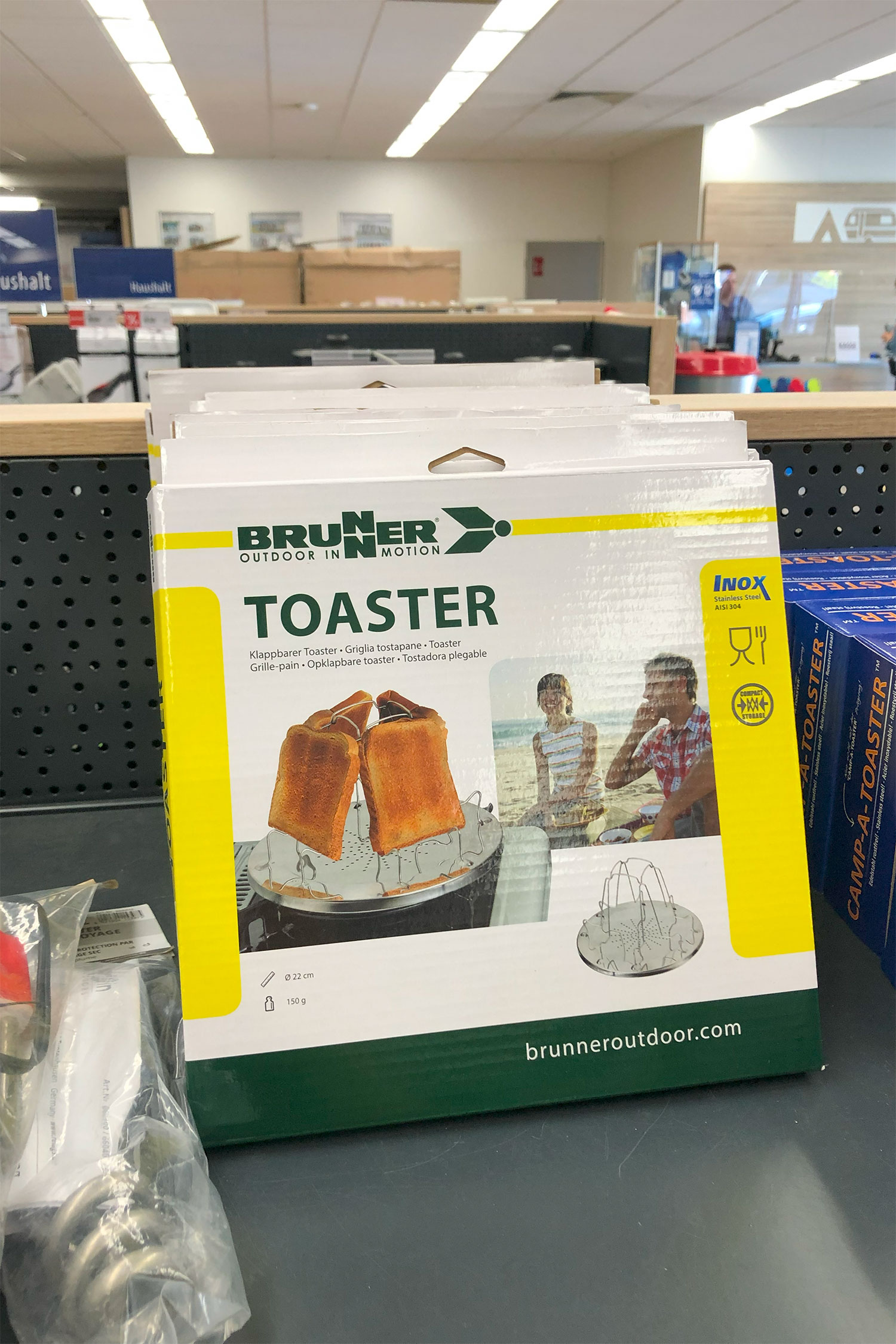
Throwing out rubbish can be challenging
Germany is popular for introducing different practices in saving the planet such as low-emission zones for vehicles and also – more organized waste management where pet bottles you need to return at deposit stations in supermarkets and other waste you need to separate into different categories. Although general waste bins are available in cities, we found that they are much rarer than in other countries and because of that – more difficult for us to find where to throw our rubbish out.
Unfortunately, we couldn’t sort the waste as when you have a flat or home and the waste is managed by the authorities and you have dedicated space for everything. When traveling, we try our best to throw everything where it’s meant to be but in Germany, we sometimes found ourselves with a lot of trash bags and no place to get rid of them. For us, the best places to throw waste were at gas stations or rest stops.
Many places to stay overnight
Even though because of popularity, motorhomes and vans are not welcome everywhere and there are more paid parking lots than in some other European countries, there are still plenty of parking spots to stay for free overnight. And not just that, you can find beautiful places to park in nature as well that don’t cost at all. Of course, this is only possible if every camping trip ends up with clean space and not leaving any trace behind with rubbish. While traveling through Germany, we stayed mostly only in places for free, and generally, they were clean and well looked after but it’s still pretty common to find traces after some vanlifers. This is certainly not only important so that other travelers can stay there but also to protect our dear planet and to be more conscious about our daily habits.
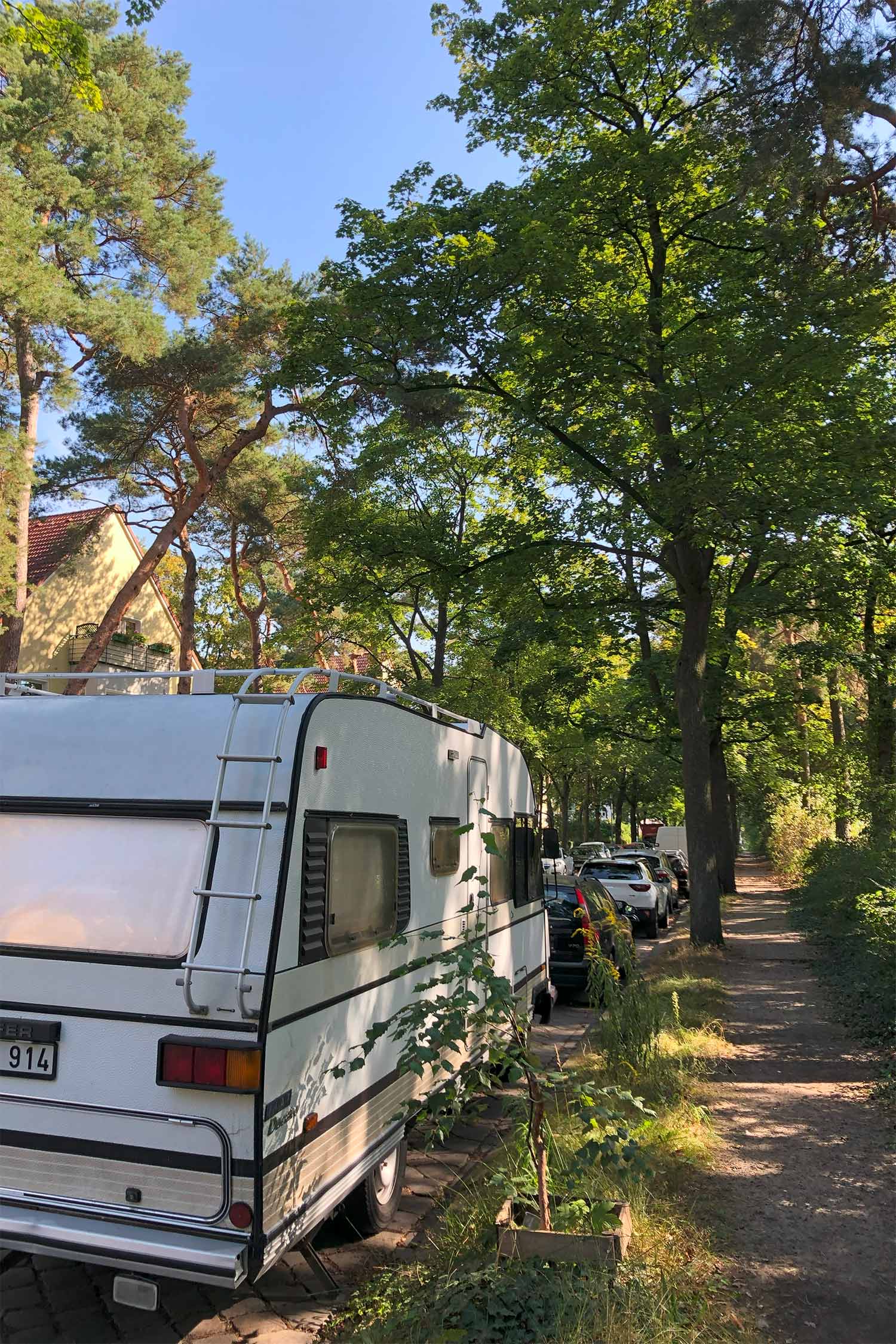
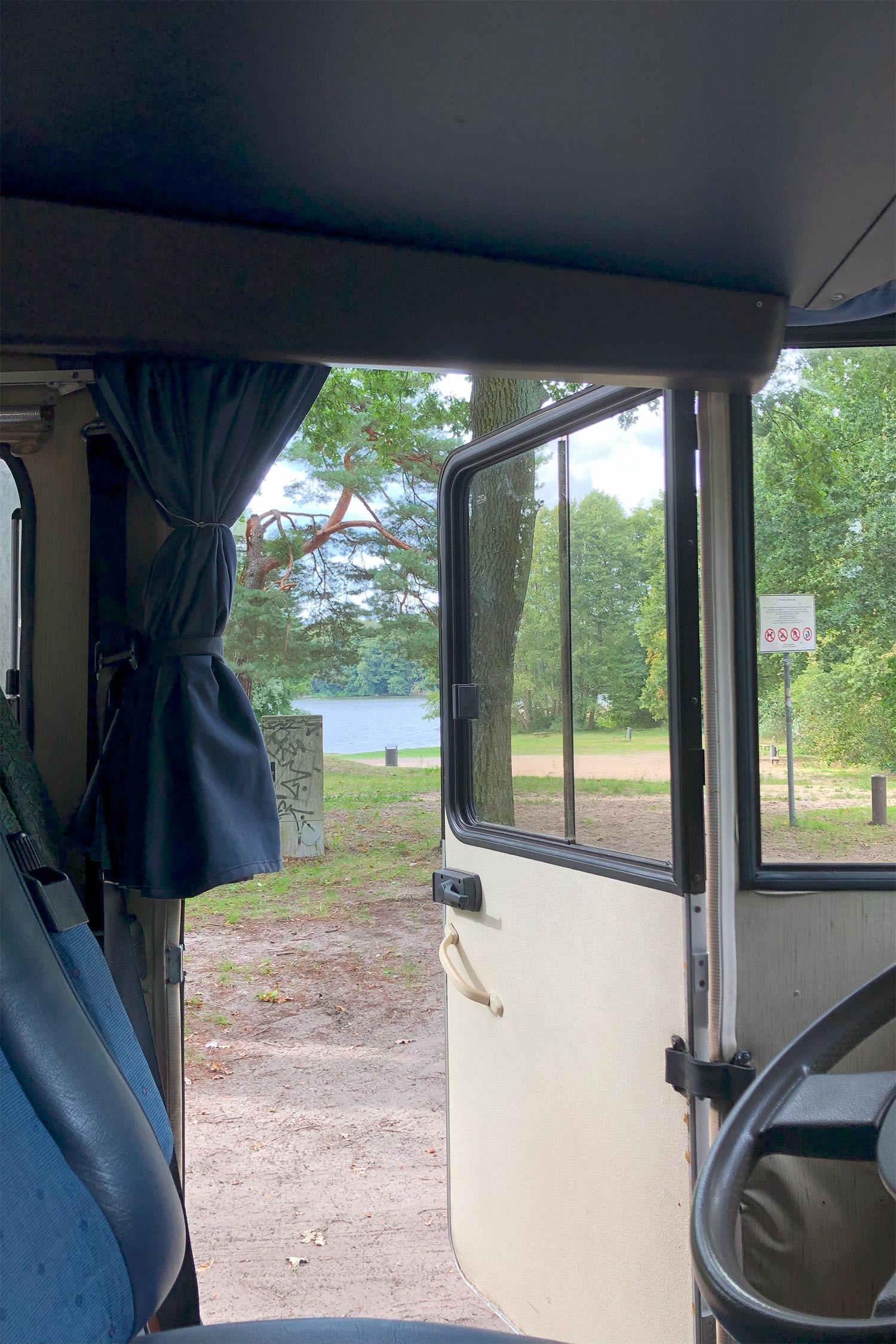
Internet is expensive
This was a painful revelation since we are digital nomads and a stable internet connection with enough data to comfortably work is more than necessary. Sadly, at least for us, the SIM card offers were very expensive that we found in stores or by searching online. Overall it seemed that one GB of internet cost equally to 1 Euro which is more than we could afford – we usually spend about 10/15 GB per day which isn’t a lot but it’s at least 70 Euros per week and 300 Euros per month at those rates.
We didn’t find a provider that we could use and most of the affordable options were if you make a contract which we didn’t want to do since we weren’t sure about how long we would stay in the country. So we just used the data roaming that we had from our home SIM cards and used free WIFI wherever we could find one. If you happen to know a good SIM card option, please leave a comment below, I would love to know for future trips!
Good and well-planned roads/highways
Driving in Germany is a pleasure – the roads and highways are very well planned out and comfortable to navigate. Usually, the quality of the roads is also very good and they are well maintained. What surprised me the most, was the fact that if a roadwork is happening on a highway, the traffic is very well managed and distributed, not creating traffic jams. If you have a bad experience with other drivers being disrespectful then Germany overall had very polite drivers and we felt safe on the road at all times. Coming from a country where drivers can be a bit crazy (Latvia), this was a huge bonus while traveling the country.


Low bridges
When you hear about low bridges and narrow streets, you usually think of Italy or France. That’s why we were so surprised to find a lot of low bridges in Germany. We struggled the most in Bremen if you can believe that. Our motorhome is about 2.8 meters in height and some bridges were under 3 meters that we didn’t want to risk so driving in cities sometimes turned out to be harder than expected. The way we tried to navigate without facing the low bridges afterward was using Google Maps satellite map (since there isn’t a street view in Germany) and hoped for the best.
Lots of truck stops/rest stops on motorways
While traveling long distances, plenty of options to stop on the way are necessary. In Germany, there are loads of rest stops along the highway, sometimes with only paid toilets, outside tables, and bins but you can also find gas stations with cafes as well. What surprised us the most were the prices that gas stations and cafes on the highways had – a normal-sized coffee that in a city can cost about 2 or 3 Euros, but in the cafes costs up to 5 Euros. Not to mention the prices of food and snacks. If you are on a budget, I would recommend stocking up on food before entering the highways, it saved a lot of money for us.
Safety
Safety while traveling with a motorhome full-time where almost all your necessities are being stored, is a very important thing to consider. Germany generally felt safe, especially in the smaller cities or villages where there are fewer people and the general atmosphere is much calmer. On another note, larger cities, above all – Berlin, we found to be tricky.
Usually, to find parking spaces we search them on the Park4Night app and there we saw not a few but rather a lot of parking spots where people reported breaking into cars, shattered windows, burned down cars, and even stolen altogether. After reviewing those incidents we feared parking in Berlin but I believe that the key is finding a calmer neighborhood that feels and looks safe to you and if staying for a longer period, maybe changing locations every few days.
Unfortunately, paid parking lots that have security had also bad experiences, therefore, I recommend just following what feels the safest to you – either renting a spot at a campsite, finding a safer neighborhood, or altogether – leaving the vehicle at a nearby city and traveling to Berlin by public transport, there’s sadly not one right answer to that. In other, larger cities, we encountered similar reviews on the parking spaces, although less often. Thankfully, we had great experience in staying safely and for free in all of the cities that we traveled to but there’s never enough assurance about your safety and trusting your instinct if something feels off.
Maps aren’t full-fledged
As I briefly mentioned in the low bridge point, in Germany, there is no street-view on Google Maps available which makes driving and exploring a little bit difficult since knowing how narrow streets can go or how large the parking lot is and if your vehicle will fit in, is important. Google Maps satellite version was very helpful and allowed us to at least partially scout out and plan where to drive and if we, with our almost 7-meter-long motorhome, would fit in. The reason why the maps in Germany don’t have street-view is because privacy and data protection to Germans is very important and even though Google Maps tried twice to establish street-view, it was strongly objected against.
Final thoughts
Despite the challenging parts of traveling and camping with a motorhome in Germany, it’s so worth it. The country is so diverse – from seaside cities and beaches to mountains and deep forests, from small, charming towns to big, vibrant cities, Germany truly has it all. I strongly believe that Germany is a must for everyone who loves to travel, either to explore nature and city life or be amazed by the history and how developed the country is. Aside from that, the country is vast, compared to neighboring countries and it can take even months to truly savor the places and explore them to the fullest.
Before traveling to Germany with a motorhome, I also had multiple backpacking trips, staying in hotels and Airbnb’s but after spending more time in the country and having my own vehicle to do so, I felt more free and able to spend more time in the country than in previous visits. Germany can get pricey when it comes to hotels hence if you are on a budget and want to experience the country the best, I highly recommend the camping experience.
Check out my post on places to visit in Dresden, Germany here as well as other posts about Germany here!
Latest blog posts
- 8 Things to know about vanlife in the Netherlands
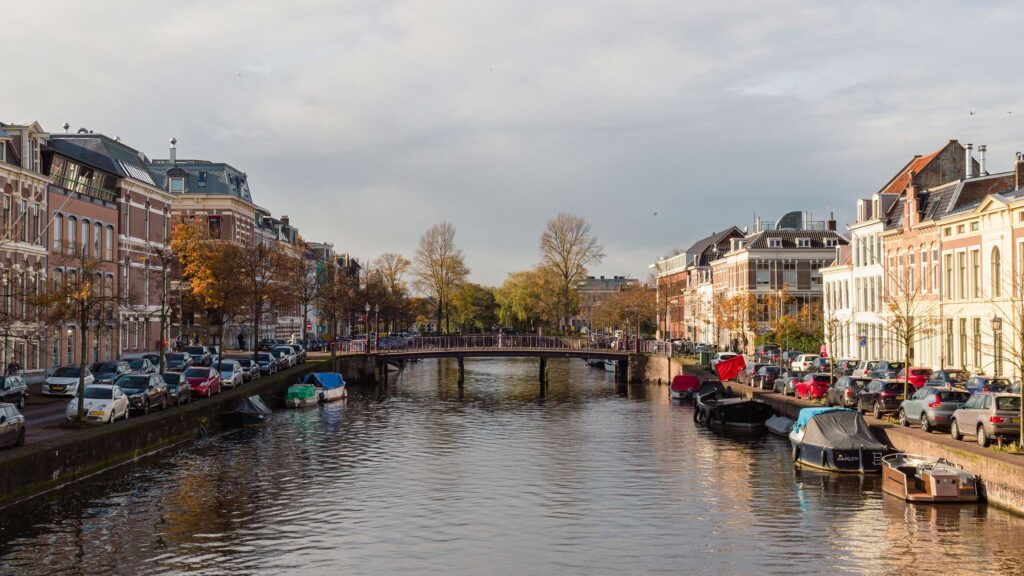
- Places to visit in Amsterdam on a budget-friendly trip

- Places to visit in Utrecht on a one-day budget-friendly trip

